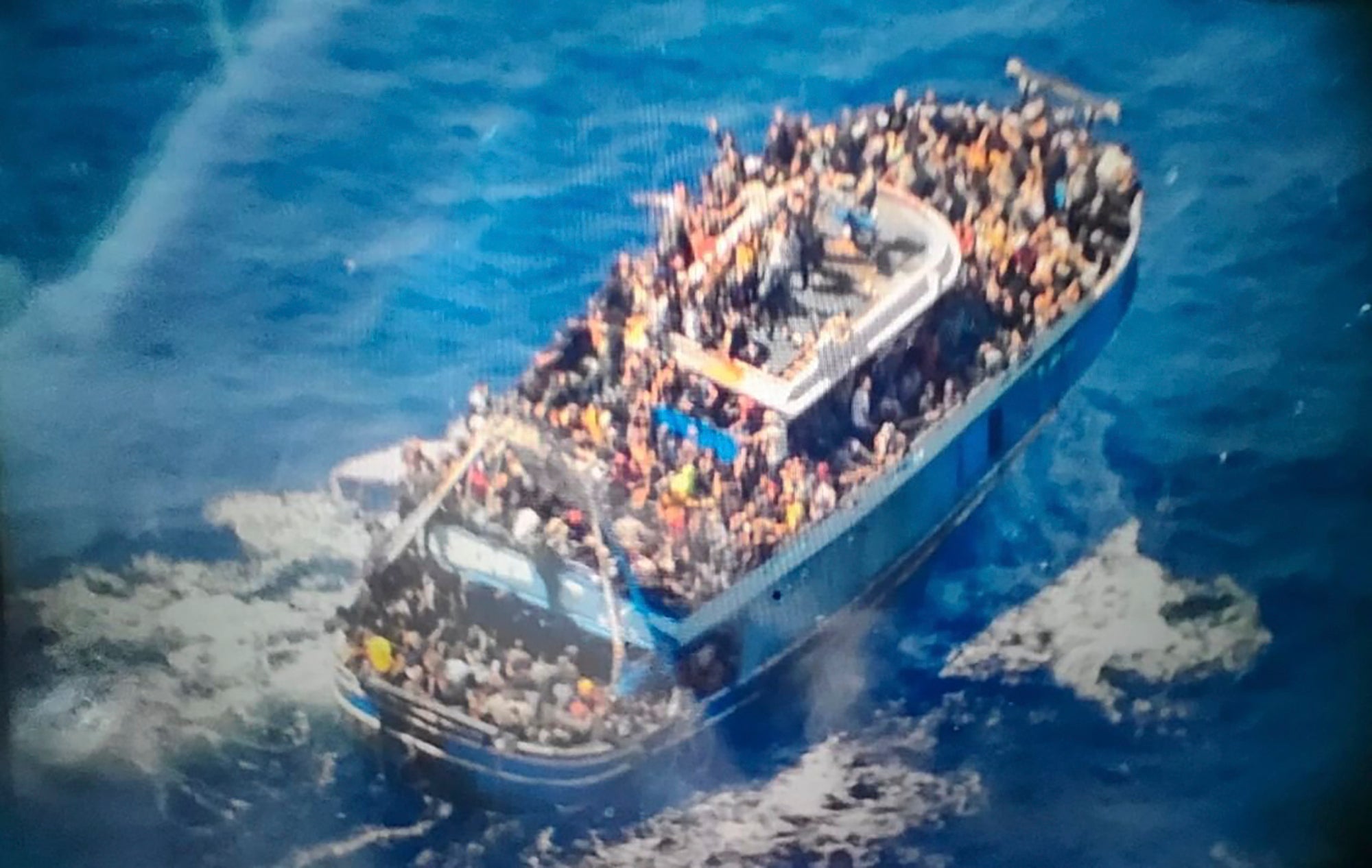EU watchdog wants new search and rescue rules after hundreds of migrants drown off Greece
The European Union’s own watchdog wants changes to Europe’s search and rescue rules following an inquiry into the sinking of a boat carrying hundreds of migrants last year

The European Union’s administrative watchdog called Wednesday for a change to Europe’s search and rescue rules following an inquiry into last year's sinking of a rusty fishing boat, the Adriana, carrying hundreds of migrants while traveling from Libya to Italy.
European Ombudsman Emily O’Reilly said current rules prevent the EU’s border and coast guard agency Frontex from fulfilling its obligations to protect the rights of migrants or act independently of national authorities when boats they use are in distress.
Up to 750 people were believed to be crammed aboard the Adriana when it sank off Greece last June. Just 104 people were rescued — mostly migrants from Syria, Pakistan and Egypt — and 82 bodies were found. Human rights groups accused Greek authorities of failing to properly investigate. Italian authorities were also involved in the incident.
“Why did reports of overcrowding, an apparent lack of life vests, children on board and possible fatalities fail to trigger timely rescue efforts that could have saved hundreds of lives?” O’Reilly asked.
Frontex provides surveillance and other support to the 27 national authorities — plus those of some EU partner countries — to help protect their maritime and land borders. In emergencies, it is obliged to follow the orders of those authorities and has no power to coordinate rescue missions.
O’Reilly said documents inspected during her inquiry showed that Frontex made four separate offers to assist Greek authorities with aerial surveillance of the Adriana but received no response. Current rules prevented Frontex from going to the ship without Greek permission.
“We must ask ourselves why a boat so obviously in need of help never received that help despite an EU agency, two member states’ authorities, civil society and private ships knowing of its existence,” O’Reilly said.
Thousands of people die or go missing in the Mediterranean each year in desperate attempts to reach Europe in barely seaworthy boats to escape poverty, war, abuse or discrimination. But the EU and member countries do not have a search and rescue mission actively patrolling.
The Italian authorities set up a search and rescue effort in 2013, but it was abandoned due to accusations that it only inspired more people to come. Italy and others have actively sought to stop charity ships from doing such work, sometimes by impounding their vessels.
“If Frontex has a duty to help save lives at sea, but the tools for it are lacking, then this is clearly a matter for EU legislators,” O’Reilly said. She said cooperation with national coastguards by Frontex when it lacks autonomy “risks making the EU complicit in actions that violate fundamental rights and cost lives.”
Reacting to the ombudsman’s findings, the agency said it “is deeply committed to saving lives and we’re always looking for ways to do our job better, especially when it comes to search and rescue missions.”
Frontex welcomed the ombudsman’s acknowledgement that the agency had followed all laws and procedures when alerting Greek and Italian authorities.
It said an assessment by Frontex’s own fundamental rights officer “confirms our adherence to international laws and the adequacy of our support to national authorities, alongside the proper conduct of search and rescue operations.”
EU member countries and lawmakers are currently negotiating a new overhaul of the bloc's asylum and migration rules, and are trying to push it through before Europe-wide elections on June 6-9. The reforms do not include any proposals for proactive search and rescue missions.
___
Follow AP’s global migration coverage at https://apnews.com/hub/migration